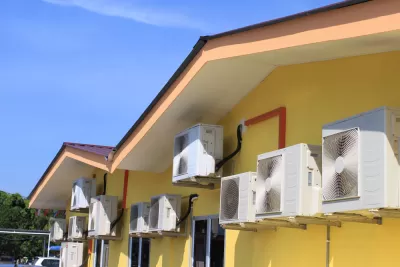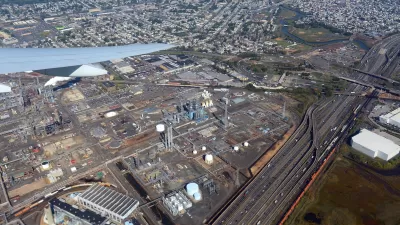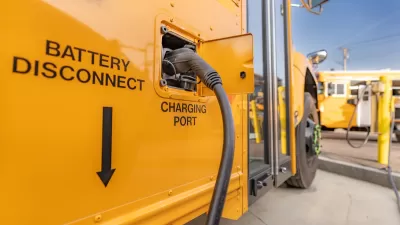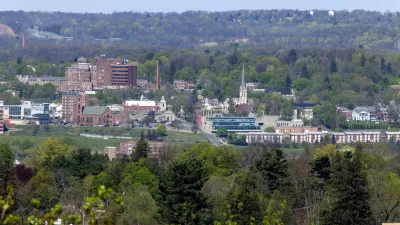The Guardian sounds the alarm about deadly heat exposure in poor communities around the world.

Cities around the world are increasingly reaching "killer temperatures," exposing record numbers of people to deadly heat for weeks at a time—and as urbanization increases, these risks will grow. But within cities, a feature in The Guardian shows, the impacts of intense heat and pollution clearly follow economic and racial lines.
In the US, immigrant workers are three times more likely to die from heat exposure than American citizens. In India, where 24 cities are expected to reach average summertime highs of at least 35C (95F) by 2050, it is the slum dwellers who are most vulnerable.
In general, the authors write, the people most likely to suffer illness or death due to extreme heat include those experiencing homelessness, prisoners, and "low-income populations living near traffic in poor housing with no air conditioning." People who live in areas with trees and green landscaping bear less risk than people in areas dominated by asphalt, brick, and concrete—and research has repeatedly shown that these conditions are largely determined by race and wealth. In the U.S., for example, Berkeley researchers found that "Black people were 52% more likely than white people to live in areas of unnatural 'heat risk-related land cover', while Asians were 32% more likely and Hispanics 21%."
FULL STORY: Heat: the next big inequality issue

Alabama: Trump Terminates Settlements for Black Communities Harmed By Raw Sewage
Trump deemed the landmark civil rights agreement “illegal DEI and environmental justice policy.”

Study: Maui’s Plan to Convert Vacation Rentals to Long-Term Housing Could Cause Nearly $1 Billion Economic Loss
The plan would reduce visitor accommodation by 25% resulting in 1,900 jobs lost.

Planetizen Federal Action Tracker
A weekly monitor of how Trump’s orders and actions are impacting planners and planning in America.

Wind Energy on the Rise Despite Federal Policy Reversal
The Trump administration is revoking federal support for renewable energy, but demand for new projects continues unabated.

Passengers Flock to Caltrain After Electrification
The new electric trains are running faster and more reliably, leading to strong ridership growth on the Bay Area rail system.

Texas Churches Rally Behind ‘Yes in God’s Back Yard’ Legislation
Religious leaders want the state to reduce zoning regulations to streamline leasing church-owned land to housing developers.
Urban Design for Planners 1: Software Tools
This six-course series explores essential urban design concepts using open source software and equips planners with the tools they need to participate fully in the urban design process.
Planning for Universal Design
Learn the tools for implementing Universal Design in planning regulations.
Caltrans
Smith Gee Studio
Institute for Housing and Urban Development Studies (IHS)
City of Grandview
Harvard GSD Executive Education
Toledo-Lucas County Plan Commissions
Salt Lake City
NYU Wagner Graduate School of Public Service





























